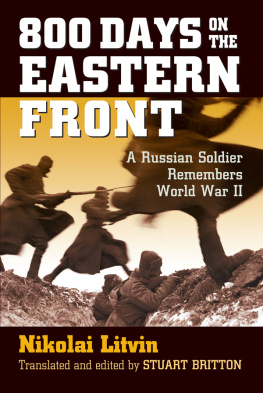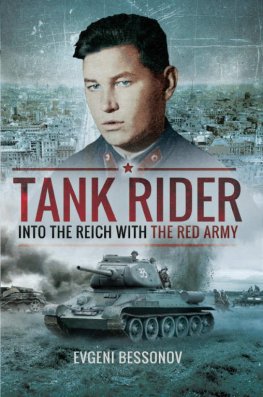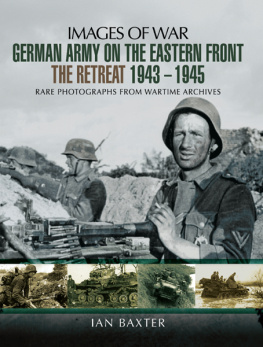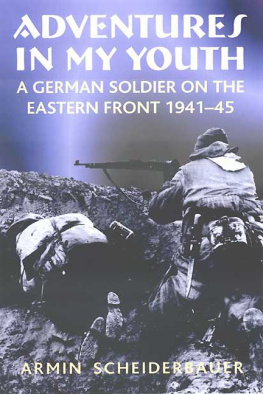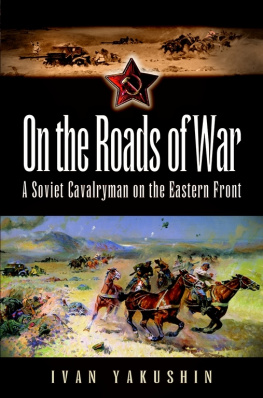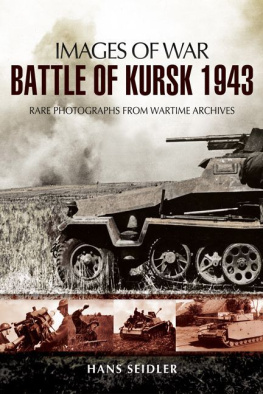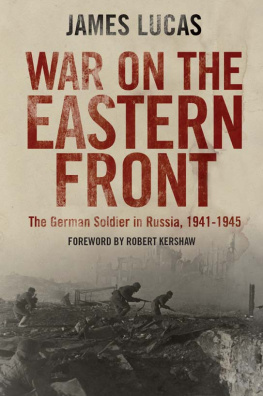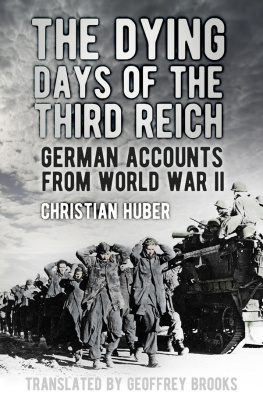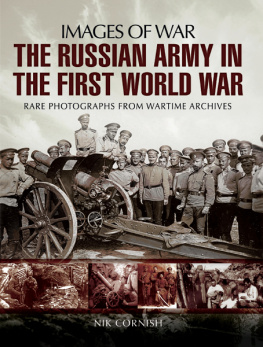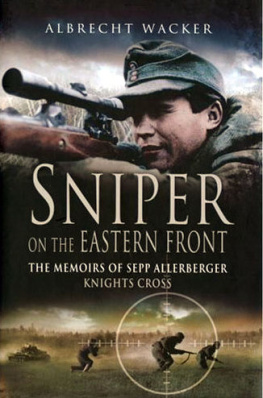Nikolai Litvin - 800 Days on the Eastern Front: A Russian Soldier Remembers World War II
Here you can read online Nikolai Litvin - 800 Days on the Eastern Front: A Russian Soldier Remembers World War II full text of the book (entire story) in english for free. Download pdf and epub, get meaning, cover and reviews about this ebook. year: 2017, publisher: University Press of Kansas, genre: Non-fiction. Description of the work, (preface) as well as reviews are available. Best literature library LitArk.com created for fans of good reading and offers a wide selection of genres:
Romance novel
Science fiction
Adventure
Detective
Science
History
Home and family
Prose
Art
Politics
Computer
Non-fiction
Religion
Business
Children
Humor
Choose a favorite category and find really read worthwhile books. Enjoy immersion in the world of imagination, feel the emotions of the characters or learn something new for yourself, make an fascinating discovery.
- Book:800 Days on the Eastern Front: A Russian Soldier Remembers World War II
- Author:
- Publisher:University Press of Kansas
- Genre:
- Year:2017
- Rating:4 / 5
- Favourites:Add to favourites
- Your mark:
800 Days on the Eastern Front: A Russian Soldier Remembers World War II: summary, description and annotation
We offer to read an annotation, description, summary or preface (depends on what the author of the book "800 Days on the Eastern Front: A Russian Soldier Remembers World War II" wrote himself). If you haven't found the necessary information about the book — write in the comments, we will try to find it.
Barely out of his teens, Litvin served for three years in the Red Army on the killing fields of the Eastern Front. His memoir presents an unadorned, candid narrative of the common soldiers lot in Stalins army. Unlike the memoirs of Russian officersusually preoccupied with large military operations and political concernsthis narrative offers a true ground-level view of World War IIs deadliest theater. It puts a begrimed human face on the enormous toll of casualties and provides a rare perspective on battles that were instrumental in the defeat of the German army.
Litvins varied roles, ranging from antitank gunner at Kursk to heavy machine gunner in a penal battalion to staff driver for the 352nd Rifle Division, offer unique perspectives on the Red Army in World War II as it fought from the Ukraine deep into the German heartland. Litvin documents such significant battles as Operation Kutuzov, Operation Bagration, and the German counterattack on the Narev, while also providing unique personal observations on fording the Dnepr River under enemy fire, the rape of German women by Russian troops, and literally seeing his life pass before his eyes as he watched a Stukas bomb fall directly on his position. And, because part of his duties involved chauffeuring Red Army generals, he also presents revealing glimpses into their personalities and behaviors.
Originally written in 1962, with events still fresh in his mind, Litvins memoir lay unpublished and unseen until translator Stuart Britton and a Russian colleague approached him about publishing it in English. Britton interviewed Litvin to flesh out the details of his original recollection and annotated the resulting work to provide historical context for the campaigns and battles in which he participated. Remarkably free of Soviet-era propaganda, this gem of a memoir provides a view of the war never seen by western readers, including photographs from Litvins personal collection.
An invaluable historical document, as well as a remarkable testament of survival, Litvins memoir offers unique and penetrating insights into the Soviet wartime experience unavailable in any other source.
Nikolai Litvin: author's other books
Who wrote 800 Days on the Eastern Front: A Russian Soldier Remembers World War II? Find out the surname, the name of the author of the book and a list of all author's works by series.

